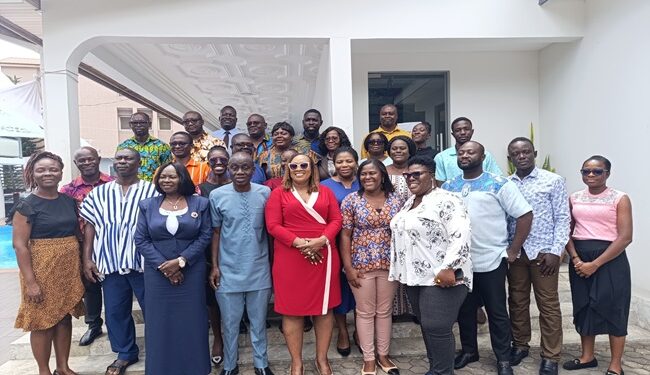Fisheries Bill to Strengthen Regulatory Framework Governing Fisheries Sector
The bill aims to address issues such as the conservation and management of fishery resources, enhancement of aquaculture practices and regulation of fishing activities.
- Advertisement -
The new fisheries and aquaculture bill is designed to modernise and strengthen the regulatory framework governing Ghana’s fisheries and aquaculture sector.
The bill aims to address issues such as the conservation and management of fishery resources, enhancement of aquaculture practices and regulation of fishing activities.
- Advertisement -
This is to prevent illegal, unreported, and unregulated (IUU) fishing, promote sustainable development and management of aquatic ecosystems, promotion of post-harvest management and trade and community participation in fisheries management through co-management.
- Advertisement -
The Minister for Fisheries and Aquaculture Development, Mrs Mavis Hawa Koomson, disclosed this at a stakeholders’ engagement on the draft of the bill on Thursday in Accra.
She noted the purpose of the engagement was to deliberate on a draft Bill submitted by the Legal Consultant engaged by the Ministry and to gather inputs from key stakeholders
“The Ministry and the Fisheries Commission recognise the pivotal role that Civil Society Organisations and the academic community play in advocating for marginalised voices, conducting vital research and providing grounded expertise. Together, we can ensure that the Bill is not only legally sound but also socially equitable and environmentally sustainable,” she said.
- Advertisement -
She stated that a new bill was necessary because the Fisheries Act 2002 (Act 625), which provides the regulation, management, development and sustainable exploitation of fishery resources, has not been modified to reflect emerging trends in sustainable fisheries management and development of aquaculture except the amendment in 2014.
“The Act does not also sufficiently address local fisheries issues, including aquaculture practices, selectivity of fishing gear, the impact of climate change on fisheries and co-management practices. International fisheries requirements are only partially provided for in the Act, making it difficult for us to meet our international obligations. Therefore, it is important that we have a robust legal framework that addresses current challenges and anticipates future needs,” she added.
Mrs Koomson reaffirmed the government’s commitment to working collaboratively with all stakeholders to safeguard the nation’s fisheries resources.
“The outcomes from this workshop will significantly inform our legislative review process, and your contributions will be instrumental in shaping policies that benefit our environment, our economy, and our communities” she added.
Source:norvanreports.com
- Advertisement -


